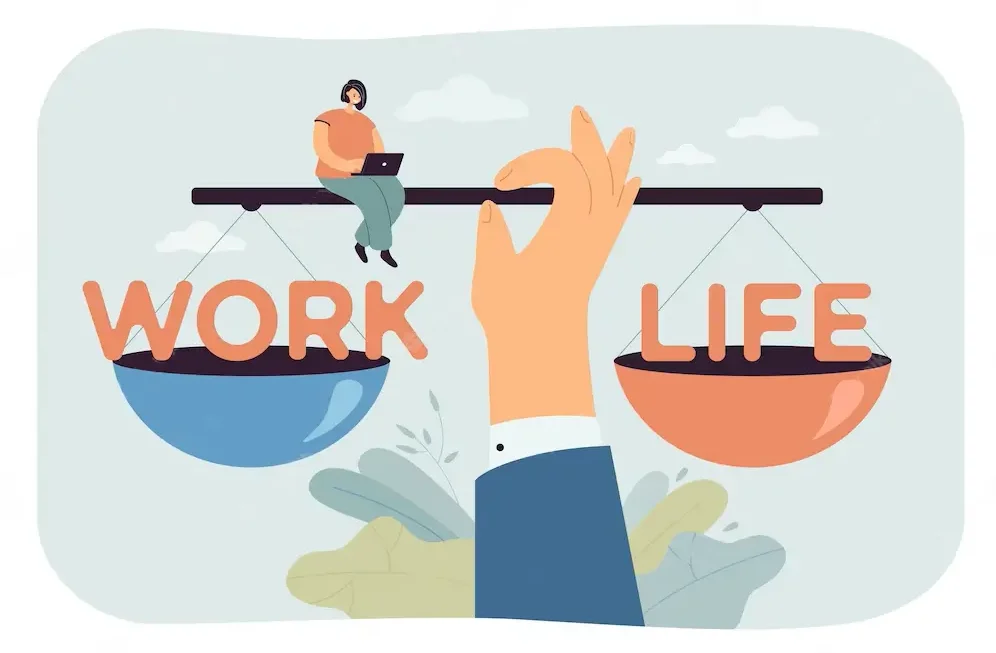Table of Contents
Why Switch Word for Career Growth is important: Changing Jobs Is Crucial for Career Growth
Career advancement has emerged as a crucial component of both professional success and personal fulfillment in today’s competitive employment environment. Even though it may seem secure to work at one place for a long time, strategically changing roles and looking for new possibilities can have a big impact on one’s career. This article explores the benefits of changing jobs for career advancement and shows how making this choice can result in a fruitful and successful professional career.
Let’s first define career progression and understand its significance in the modern world before we dig into the reasons people change jobs. Career growth is the ongoing process of learning, developing one’s skills, and moving up in one’s field. It entails learning new skills, accumulating experience, and climbing the corporate ladder to obtain more senior roles and duties.

The Idea of Changing Jobs
In the context of career development, job switching is the deliberate transition from one employment to another, either within the same industry or a new one. It’s a proactive action taken by people to improve their career prospects, take advantage of new opportunities, and investigate other job settings. Let’s examine the benefits of job changes for professional advancement.
The Benefits of Job Switching for Career Advancement
Increasing Knowledge and Skill Sets
When you change jobs, you open yourself up to fresh challenges, tasks, and commitments. You can learn a variety of skills and knowledge through this exposure, which can aid in your overall development. You gain problem-solving skills and adaptability as you deal with novel situations and complete unique tasks, which helps you become a more well-rounded professional.
Networking Possibilities
Changing jobs gives you access to new industry networks and contacts. You have the opportunity to interact with a variety of people, which may result in beneficial mentoring, project collaboration, and prospective career improvements.
Increased Compensation and Benefits
In many instances, changing jobs can result in a significant pay raise and improved benefits. Companies are frequently eager to offer competitive wage packages when your talents and experience are in high demand in order to entice top talent.
Avoiding Career Stability
Long-term employment without possibilities for advancement might result in complacency and career stagnation. A change of jobs can end this cycle, rekindle your enthusiasm for work, and give you a clean slate to pursue new objectives.
Overcoming Change-Related Fear
Assessing Your Values and Career Goals
It’s critical to assess your career goals and make sure they correspond with your beliefs before changing jobs. You may decide on potential opportunities more wisely if you know what really drives and inspires you.

Addressing Stability-Related Concerns
The worry of instability is among the most frequent concerns regarding changing jobs. However, progress frequently requires change. Consider your risk tolerance, the stability of the new business, and the long-term advantages of the change.
Embracing Resilience and Adaptability
In the modern employment environment, accepting change and being adaptable are crucial traits. Changing jobs presents an opportunity to develop resilience and learn how to function in various work settings.
Planning Your Job Change
Finding the Ideal Time to Change Jobs
When transferring jobs, timing is everything. To assess the ideal time for a change, consider your present job happiness, personal circumstances, and industry developments.

Researching Industry and Potential Employers
Do extensive study on potential employers and sectors before making a move. Find businesses that share your beliefs and provide potential for advancement.
Updating Your Professional Profiles and Resume
Make sure your professional profiles and résumé reflect your most recent accomplishments and experiences. Make sure to highlight achievements and talents that are pertinent to the new position in your application.
Interview and Negotiation Preparation
Practice typical interview questions and demonstrate how your abilities may help the new company as you are ready for them. Additionally, be prepared to haggle over your pay and perks to get a good deal.
Making a Peaceful Transition
Professionally Managing the Resignation Process
Maintain professionalism and leave your current position on good terms when you resign. Give sufficient warning and help with the task transition to achieve a seamless handover.
Transferring Duties and Information to Colleagues
Work together with your coworkers to disseminate important knowledge and information about active initiatives. This action shows that even when you leave, you remain committed to the group’s success.
Making the Transition to a New Work Environment
As soon as you begin your new employment, take the initiative to adjust to the new workplace. Be willing to pick up new skills from your new coworkers and adjust to the workplace culture.
Looking for mentoring and direction
Ask for mentoring from seasoned coworkers who can provide insightful advice while you adjust to your new career.
The Effect on Career Pathway
Speeding Up Career Advancement
By exposing you to new possibilities and challenges, changing jobs might hasten your professional growth. The skills and knowledge you’ve acquired through your various responsibilities aid in your professional development.

Enhancing Individual and Professional Development
Accepting change and rising to new challenges helps you develop personally and improves your professional abilities. You develop greater self-assurance and competence as a result of these encounters.
Assessing the Long-Term Gains
Think about the long-term advantages of changing jobs, such as improved work-life balance, higher financial rewards, and greater job satisfaction.
Accepting New Opportunities and Challenges
Establishing a Growth Mindset
A development mentality is necessary for professional advancement. Accept obstacles and see them as chances for growth and learning. You’ll be more willing to take calculated risks and embrace possibilities that can advance your career if you approach new responsibilities with a positive and open perspective.
Taking on Difficult Projects
Volunteer for initiatives that will stretch you and give you the chance to show off your abilities. By taking on difficult projects, you show that you have the ability to manage complicated work, which can help you gain respect and credibility within your firm.
Broadening Your Perspectives
Examine other professions or industry niches that fit your interests and desires. A total career change can occasionally lead to unforeseen opportunities and exhilarating possibilities that you may not have previously thought of.
Refrain From Frequently Changing Jobs
Choosing the Appropriate Number of Job Changes
While changing jobs might be beneficial, it’s important to establish a balance and stay away from repeated movements that might make future employers wonder about your stability or devotion. Aim for a smart career change that supports your long-term objectives.
Maintaining Commitment to Long-Term Objectives
Keep your eyes on your long-term professional goals. Avoid changing jobs aimlessly since it will damage your reputation and decrease your chances of finding a job that actually fits your goals.
Developing a Powerful Professional Brand
Building Your Online Presence in a Positive Way
Your online presence matters in the current digital era. On professional networks and social media sites, uphold a positive and professional image. Participate in discussions about your industry and demonstrate your knowledge to attract prospective employers.
Utilizing Social Media to Advance Your Career
Join groups that are relevant to your field, connect with other professionals through social media, and share insightful content. Developing a reputation as a thought leader in your industry might open doors to intriguing prospects and employment offers.
Summary
Changing employment is a brave and transformative move that can have a big impact on your career development. You can experience new chances and experiences that can result in both personal fulfillment and professional success by accepting change and carefully weighing your options.
The ability to adapt and have a growth mindset are crucial qualities to foster in a job environment that is continually changing. Keep in mind that job advancement involves ongoing learning and development in addition to moving up the corporate ladder. Accept challenges, look for new chances, and remain dedicated to your long-term objectives.
Get ready to start a wonderful career adventure that will bring you fulfillment and growth. Take control of your career by strategically changing jobs to suit your goals and morals.
FAQs
Q: How frequently should I change jobs to advance my career?
A: Various factors, including your professional goals and sector conventions, affect how frequently you change jobs. Instead of frequently changing jobs without a reason, strive for purposeful job changes that support your long-term development.
Q: Will changing jobs have a detrimental effect on my professional stability?
A: By exposing you to new experiences and broadening your skill sets, transferring jobs deliberately can improve your stability. In order to allay concerns about stability, emphasize your dedication to both professional and personal development.
Q: In order to improve my professional possibilities, should I switch to a new sector?
A: Changing careers might present new opportunities and challenges. Consider your enthusiasm and interests for the new field, as well as the opportunity for development and promotion.
Q: How can I transfer to a new job without any problems?
A: Professionally handle the resignation process, cooperate with coworkers on the handover, and take initiative to adjust to the new workplace. To make the changeover process easier, look for mentoring.
Q: How can I make a career change stand out in the job market?
A: Engage with professionals in the field and exchange insightful information to build a strong online presence. To impress potential employers, highlight your abilities and accomplishments in your resume and during interviews.




